Agriculture & Environment
New CAES Principal Delivers Inaugural Speech, explains strategies for improving the College
Published
3 years agoon
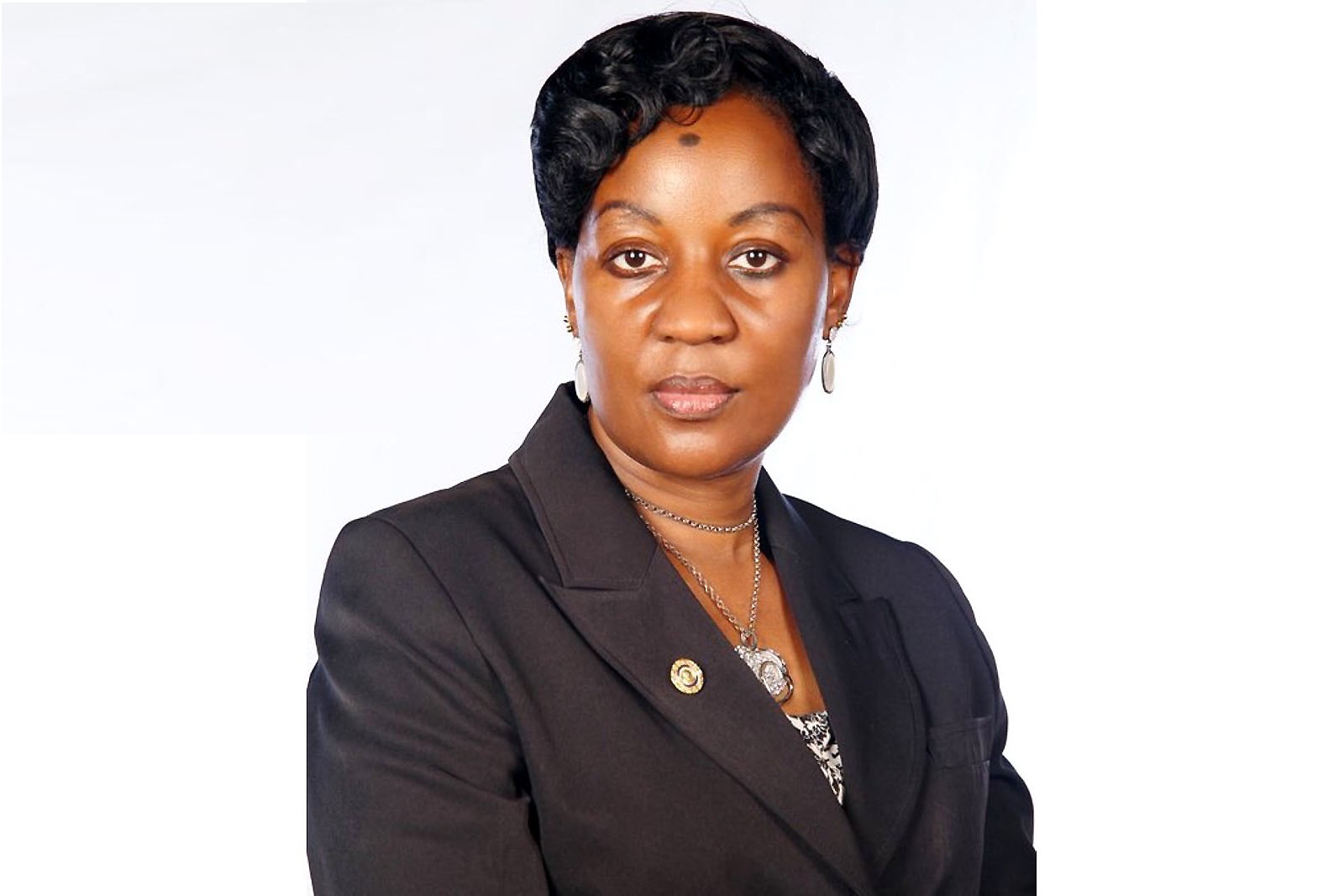
The new Principal, College of Agricultural and Environmental Sciences (CAES), Makerere University, Dr. Gorettie N. Nabanoga delivered her inaugural speech to the College community on Friday, 4th March 2022. During the event held in the Biology Laboratory at the School of Agricultural Sciences, CAES, the Principal acknowledged the transformative leadership of the outgoing Principal, Prof. Bernard Bashaasha. She also recognized the former deans and Heads of Department for the excellent service to CAES and Makerere University in general. These included; Prof. Johny Mugisha, Dean School of Agricultural Sciences (2013-2021); Prof. Jacob Agea who served as Head Department of Extension and Innovation Studies (2015-2019); Prof. Paul Kibwika, Head Department of Extension and Innovation Studies (2011-2015); Prof. Archileo Kaaya, Head Department of Food Technology and Human Nutrition (2011-2019); Prof. Phillip Nyeko, Head Department of Forestry, Biodiversity and Tourism (2011-2019); Dr. Denis Mpairwe, Head Department of Agricultural Production (2011-2019); and Dr. Yazidhi Bamutaze, Head Department of Geography, Geoinformatics and Climatic Sciences (2015-2019). Dr. Nabanoga presented plaques to the outgoing Principal and former administrators in recognition of their excellent service to the College and University in general. The Principal together with members of staff from the School of Forestry, Environmental and Geographical Sciences, led by the Dean, Dr. Fred Babweteera presented various gifts to the outgoing Principal.
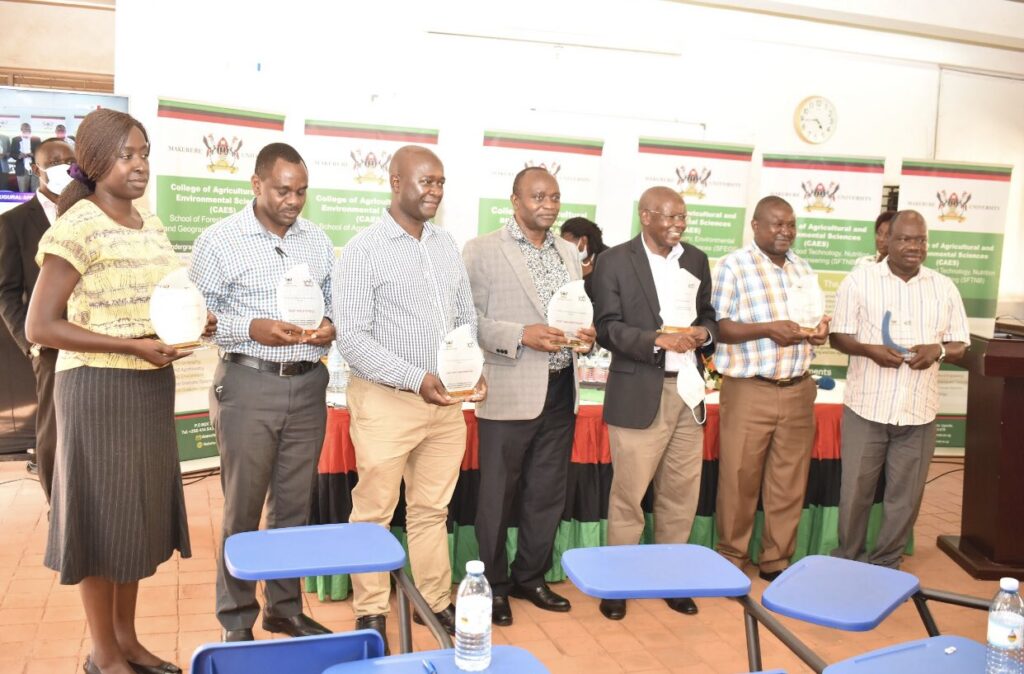
Principal’s address
Addressing the CAES community, Dr. Nabanoga appreciated the support accorded to her by all staff and students while she served as Deputy Principal. “The support motivated me to offer myself to serve as Principal of this mighty College,” she noted.
She acknowledged the support rendered to her by the outgoing Principal, Prof. Bernard Bashaasha that greatly advanced her leadership skills. “The job description of the Deputy Principal is shaped/defined by the Principal, and it on this note that I am profoundly grateful to Prof. Bashaasha for having incrementally assigned me roles and responsibilities that nurtured my leadership skills. Your selfless service and leadership were a source of inspiration that gave me confidence to pursue this leadership position, to add a building block on your achievements,” she said.
Dr. Nabanoga explained that Prof. Baashaasha’s contribution remains a strong foundation for CAES’ journey to excellence. “There’s no price I can pay to reciprocate your contribution to my leadership skills, except ensuring that your contribution to CAES’ growth is sustained. Thank you very much for building a firm foundation on which I will ably make a contribution.”
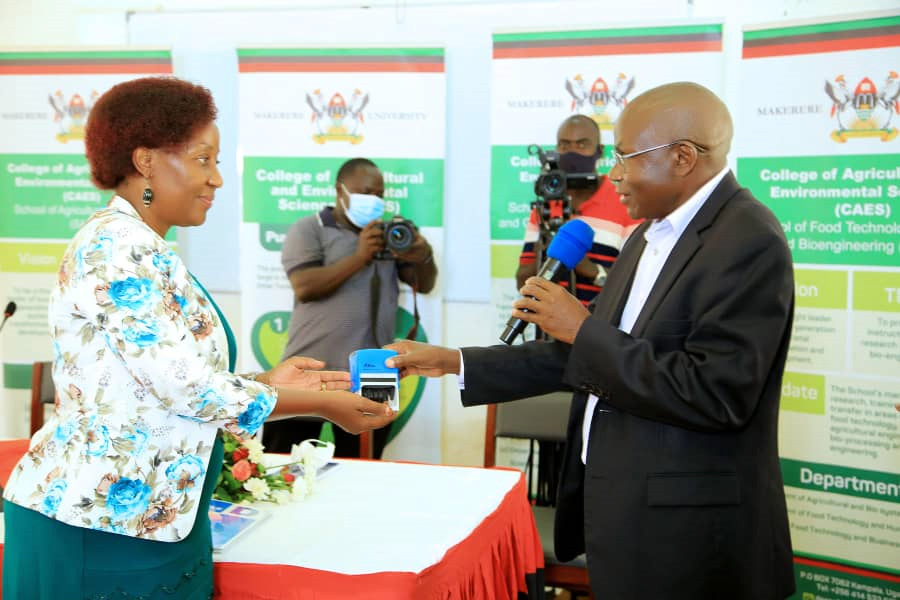
While appreciating the Deans and Heads of Department, Dr. Nabanoga noted that the great performance of a Deputy Principal is anchored on the committed service and management skills of the former. “I appreciate the Deans and Heads of Department that I worked with in the last eight and a half years as Deputy Principal. You indeed made it easy for me to deliver on my mandate,” she explained.
Dr. Nabanoga equally applauded Prof. Jacob Godfrey Agea and Dr. Patrick Okori for offering themselves for the position of Principal, CAES. “You indeed demonstrated to Makerere University that CAES has potential leaders. I know that you have a lot of experience, knowledge, and competences to make good leaders. I pledge to seek and integrate the ideas presented in your manifestos and will continue to seek your counsel and guidance for the betterment of CAES,” she said.
She appreciated the Search Committee, the University Management, Council and the Chancellor, Prof. Ezra Suruma for their trust and confidence in her leadership potential. Following a rigorous search process, the Chancellor appointed Dr. Nabanoga Principal, CAES effective 1st February 2022 for a period of four years.
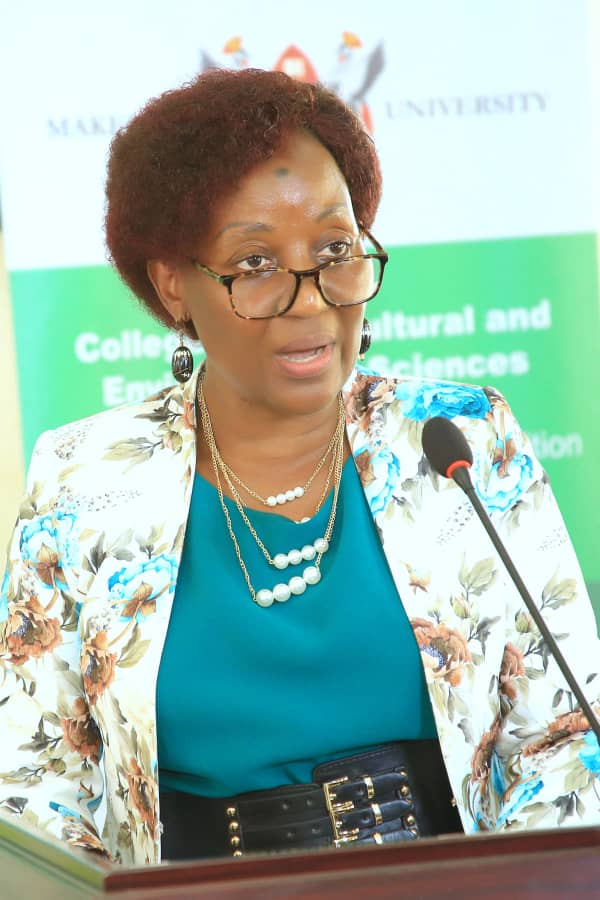
CAES’ Journey to 2025
Highlighting the achievements, challenges and strategies for improving CAES in the next four years, Dr. Nabanoga reminded members of staff that CAES is a great College with a lot of potential in the area of human capital development through the teaching programmes offered and research and innovations that significantly contribute to Makerere University ranking and brand. “All achievements in the areas highlighted have been possible because of staff commitment, an enthusiastic student community, as well as productive and well maintained research and incubation centres including the Makerere University Regional Centre for Crop Improvement (MARCCI), Makerere University Agricultural Research Institute Kabanyolo (MUARIK), the Makerere University Biological Field Station (MUBFS) and the Food Technology and Business Incubation Centre (FTBIC),” she explained, noting that despite the enormous achievements, there is still a lot more potential opportunities that can move CAES to greater heights. “This can only be possible if we deliberate and focus to address the historical and contemporary challenges, while harnessing the unlimited opportunities within and around us,” she noted.
Quoting General George Washington, the First United States President who said “The Honour and Success of the army depends upon harmony and good agreement with each other”, Dr. Nabanoga explained that success can only be realized if there is collective consciousness on the shared mission in an organization. “We are an army of intellectuals whose sole purpose is to shape discourses in our respective disciplines. This can only be possible if we cultivate harmony at CAES and have meaningful engagement with partners. This is a mission I will wake up to pursue every day,” she said.
Structural and operational challenges and strategies to address them
Highlighting the structural and operational challenges that undermine teaching and learning as a key component of the University and College mandate, Dr. Nabanoga explained that CAES programmes require skills development, calling for improvement in practical training. “The quality of practical training at the College has declined over the years majorly because of insufficient and late disbursement of funds for conducting practical training. We do not have enough technical staff in our laboratories. These challenges limit the skillset imparted to the CAES graduate, yet the world today requires human resource with appropriate skillset. As Makerere works towards improving the budget prioritization and funds disbursement routines, we need to diversify collaborations with industry to enable our students to engage in meaningful academic and work experience internships,” she explained.
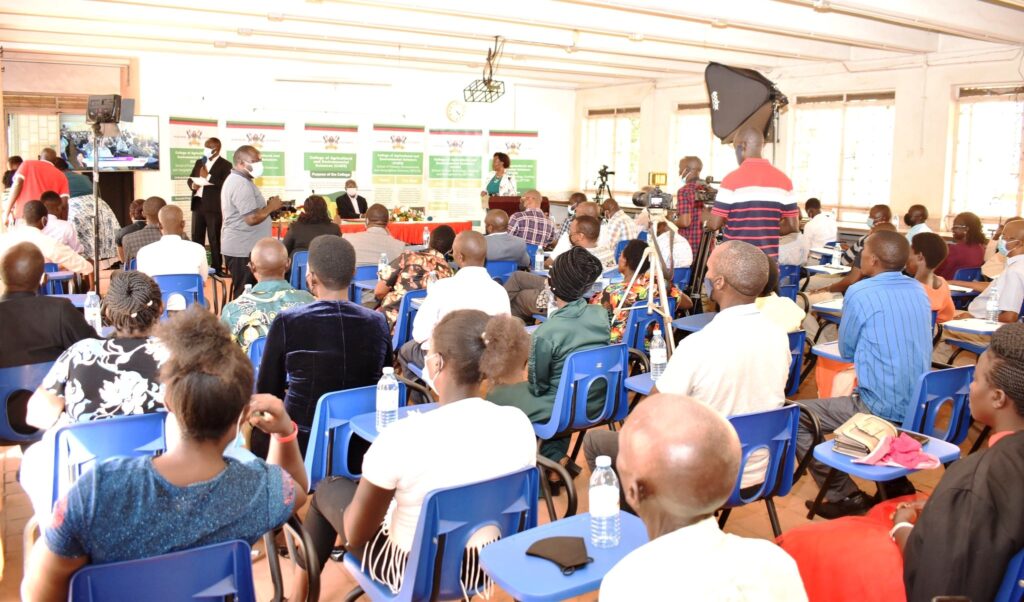
Regarding the heavy teaching load for academic staff amidst other mandates of research and knowledge transfer partnerships, Dr. Nabanoga explained that most units are understaffed, working with half of the established positions. This, coupled with the low morale amongst teaching and non-teaching, she noted was largely affecting efficiency. “The effects of this include the declining number of grant-winning research proposals, delayed submission of results, and inadequate student research supervision.”
In a bid to improve research and innovations at the College, Dr. Nabanoga called for the revitalization of relationships with former and new development partners with a global research focus. “Additionally, all Units should be encouraged to establish functional relationships with sister Units in Universities in the global North. We also need to work towards fully operationalizing research grant units, and creating incentives for researchers.
On graduate training programmes that are currently experiencing low enrolment, at 6% as opposed to the 40% desired in the University’s Strategic Plan 2020-2030, Dr. Nabanoga said the College through the Office of the Deputy Principal would work on developing a strategy to market graduate programmes. In order to improve the graduate students’ constraint of funding innovative research, she committed to provide support to schools and departments to develop research proposals with a provision of research funds for graduate students. She also committed to foster continuous improvement in the graduate supervision and examination processes, which shall improve the current graduate completion rate from 75% to 90%. “This will require efforts in areas such as increasing the pool of examiners, full operationalization and utilization of the Grad-Track System, developing a system of recognizing best performing examiners, and supporting Units to establish incubation centres to promote innovations.
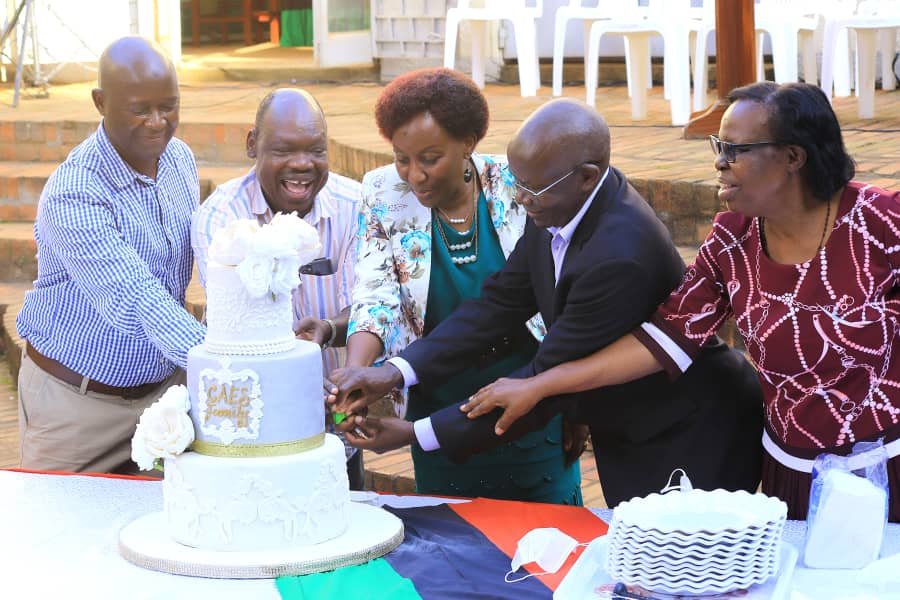
On resource mobilization, Dr. Nabanoga noted that together with all staff, she would work towards exploring and fully utilizing MUARIK and other Institutes and Centres of Excellence at the College. “We need to change our mindset in sorting these challenges if we have to fast track research and innovation. I propose that we intention and purpose to become entrepreneurs in Academia. My dream is to see CAES as the Apex of impactful research and Human Capital Development, fitting the world of work, with innovative entrepreneurial operations,” she said.
Dr. Nabanoga emphasized the need for inclusivity at all levels of operation, committing that she would support schools and department to form engendered working committees to address their unique challenges.
Concluding her remarks, Dr. Nabanoga recognized the unique services of administrative and other non-teaching staff at the College. “The cleaners do a noble job to keep us healthy, the registrars absorb most of the complaints from the students, and the finance team are the engine of the College operations. All these categories of staff including the Human Resources team, communications team and ICT staff are our unsung heroes and heroines. I pledge to be responsive to your needs, interests and aspirations. I will continue to maintain my open door policy. Feel free to walk in and if you don’t, I will walk to you. I reiterate my commitment to a co-creative approach in identifying and addressing the barriers in our areas of mandate.”
At the event, several members of staff paid glowing tribute to the outgoing Principal, Prof. Bernard Bashaasha for his excellent leadership skills, cooperation, and improvement of the teaching and research infrastructure at the College, and appealed to him to continue offering them guidance.
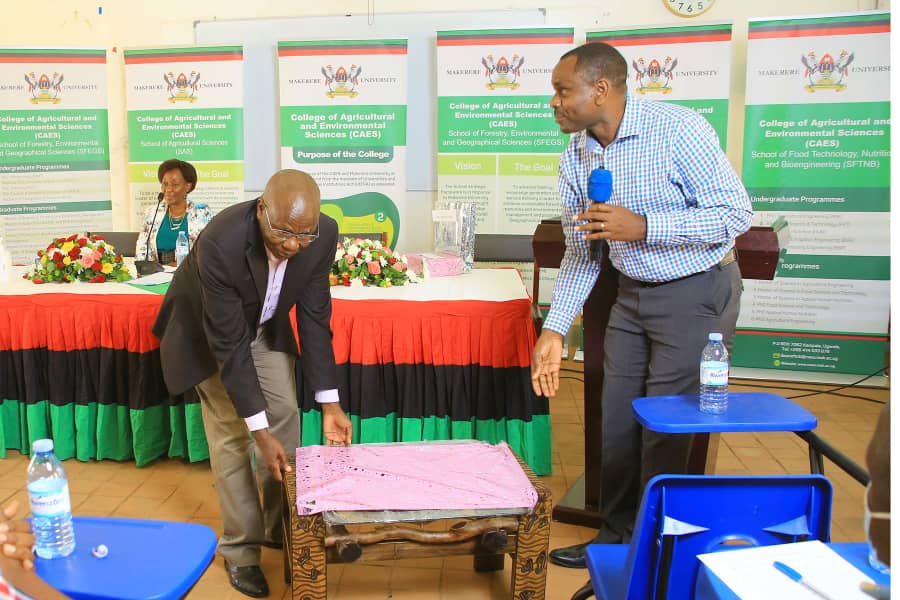
In his remarks, Prof. Bashaasha acknowledged the overwhelming appreciation of his service by members of staff at the College. He pledged continued support to the new Principal and all staff at the College.
The event was crowned with a cocktail party for all staff held in the School of Agricultural Sciences Quadrangle.
You may like
-


Simplicity, Service & Scholarship: Hallmarks of Professor Livingstone Luboobi’s Legacy
-


Celebrating the Life of Prof. Livingstone Sserwadda Luboobi
-


Fare Thee Well Prof. Luboobi
-
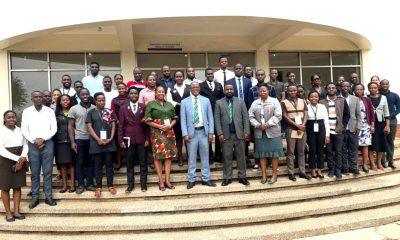

Mak Moves to Revitalize Food Technology & Business Incubation Centre to Drive Innovation & Entrepreneurship
-
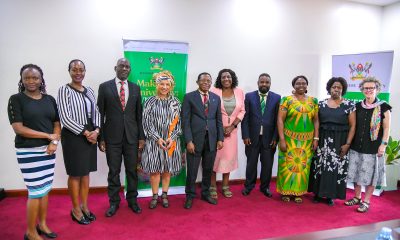

Mak, HERS-EA Discuss Nurturing More Women Leaders
-
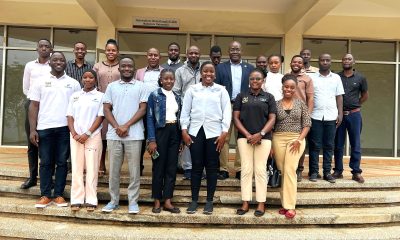

SophiA Project Upgrades Medical Infrastructure at Buvuma Health Centre IV, Trains Technicians for Maintenance Works
Agriculture & Environment
Mak Moves to Revitalize Food Technology & Business Incubation Centre to Drive Innovation & Entrepreneurship
Published
5 days agoon
July 14, 2025By
Mak Editor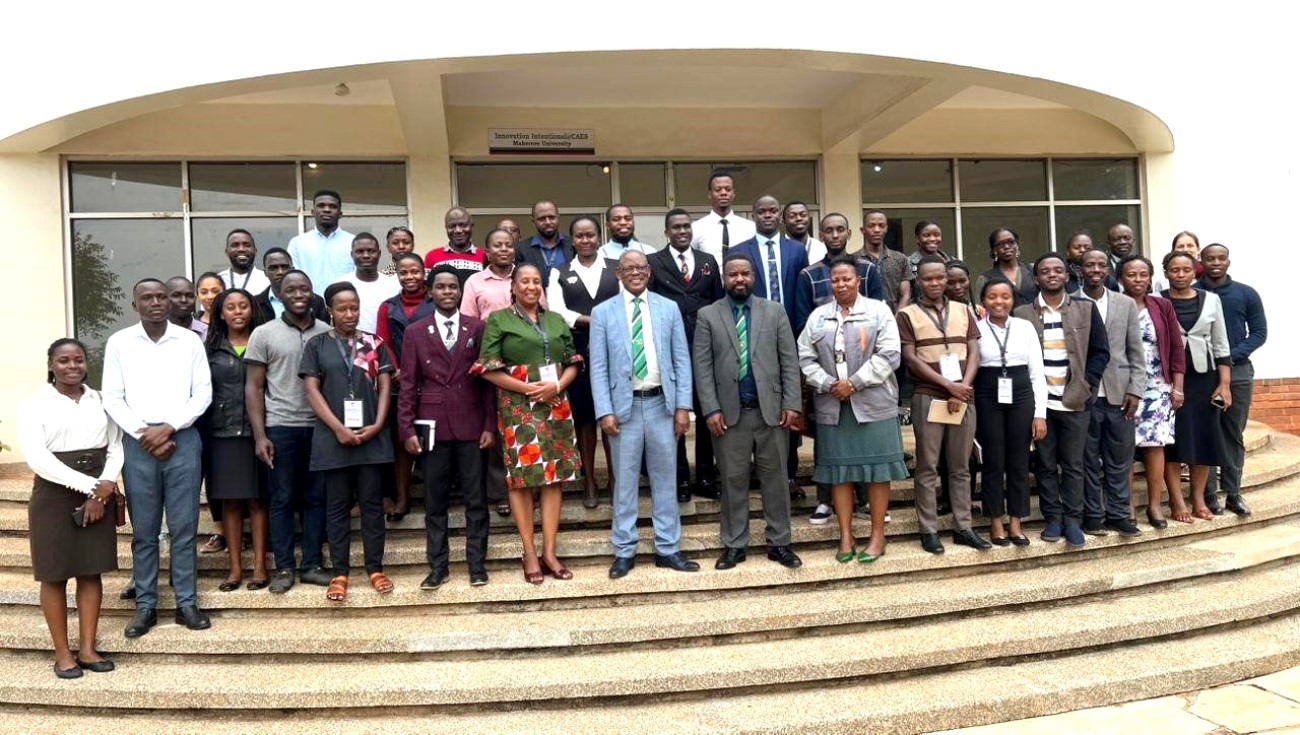
By Ssembogga Derrick
Makerere University marked a significant milestone on Thursday, 10th July 2025, with the launch of the revitalization programme for the Food Technology and Business Incubation Centre (FTBIC). This initiative is poised to position the FTBIC as a national hub for food innovation, student enterprise development, and agro-industrial transformation.
Hosted under the School of Food Technology, Nutrition and Bioengineering (SFTNB) at the College of the Agricultural and Environmental Sciences (CAES), the revitalization of the FTBIC is intended to bridge the gap between academia and industry. “We aim to achieve this by supporting food-based start-ups, enhancing graduate entrepreneurship, and promoting the commercialization of research,” Dr Julia Kigozi, Dean, SFTNB explained. The project receives critical funding from the Makerere University Research and Innovations Fund (MakRIF), which consistently supports innovation and research-based development at the university.
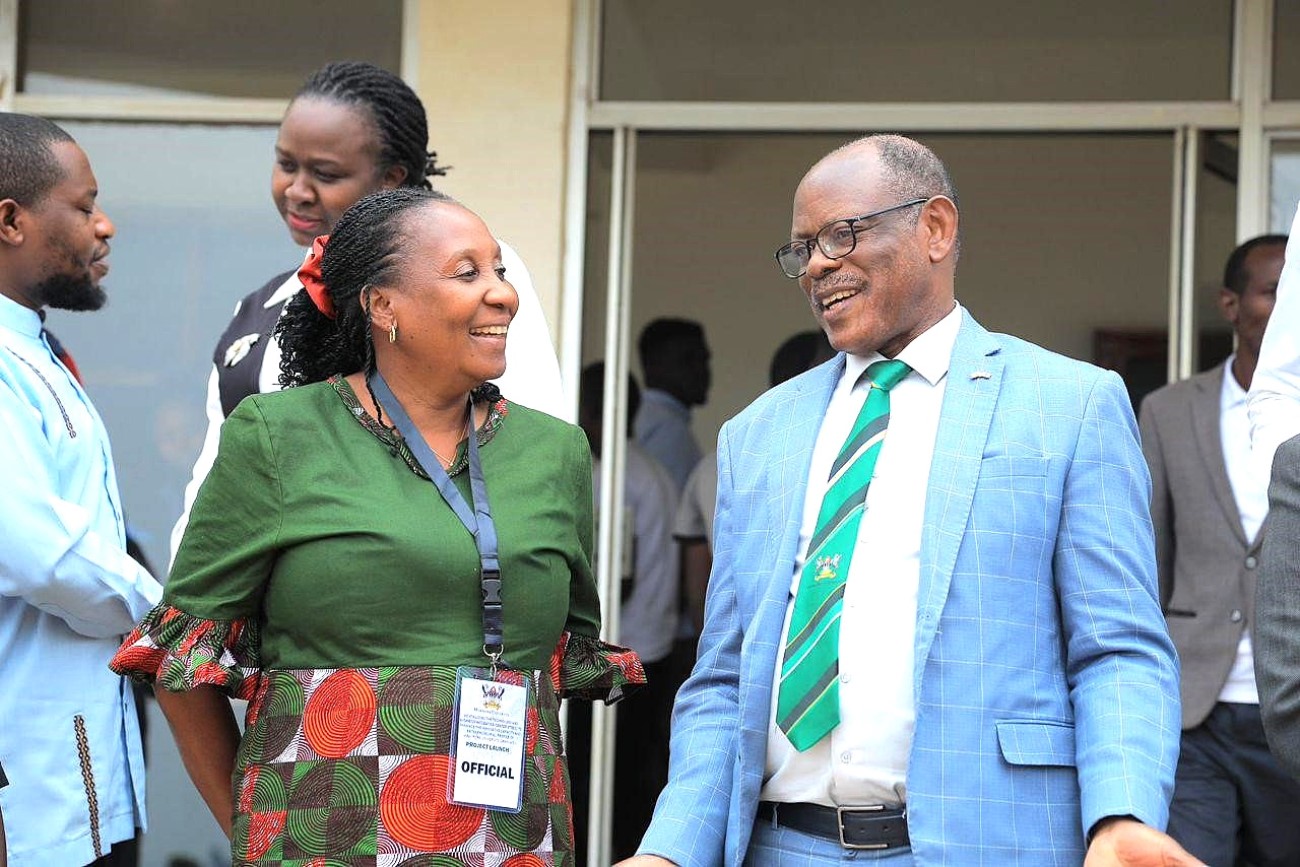
Unveiling a New Strategic Vision
The event, held under the theme “Revitalizing FTBIC to Unlock Innovation and Entrepreneurship Potential among Makerere University Graduates”, marked the official launch of the Centre’s revitalization programme to key stakeholders. It featured the presentation of FTBIC’s new strategic vision and direction, highlighting the commitment of the institution and its partners to fostering graduate entrepreneurship and innovation in food systems. The event also aimed to raise awareness of the Centre’s crucial role in supporting industry, research, and national development.
Participation of stakeholders
The launch attracted a vibrant and diverse audience of over 50 participants. Among the attendees were student representatives; partners from other incubation centers both within and outside Makerere University, including MIIC, UNIPOD, and DGI; as well as representatives from national innovation stakeholders such as Uganda Industrial Research Institute (UIRI) and StartHub Africa.
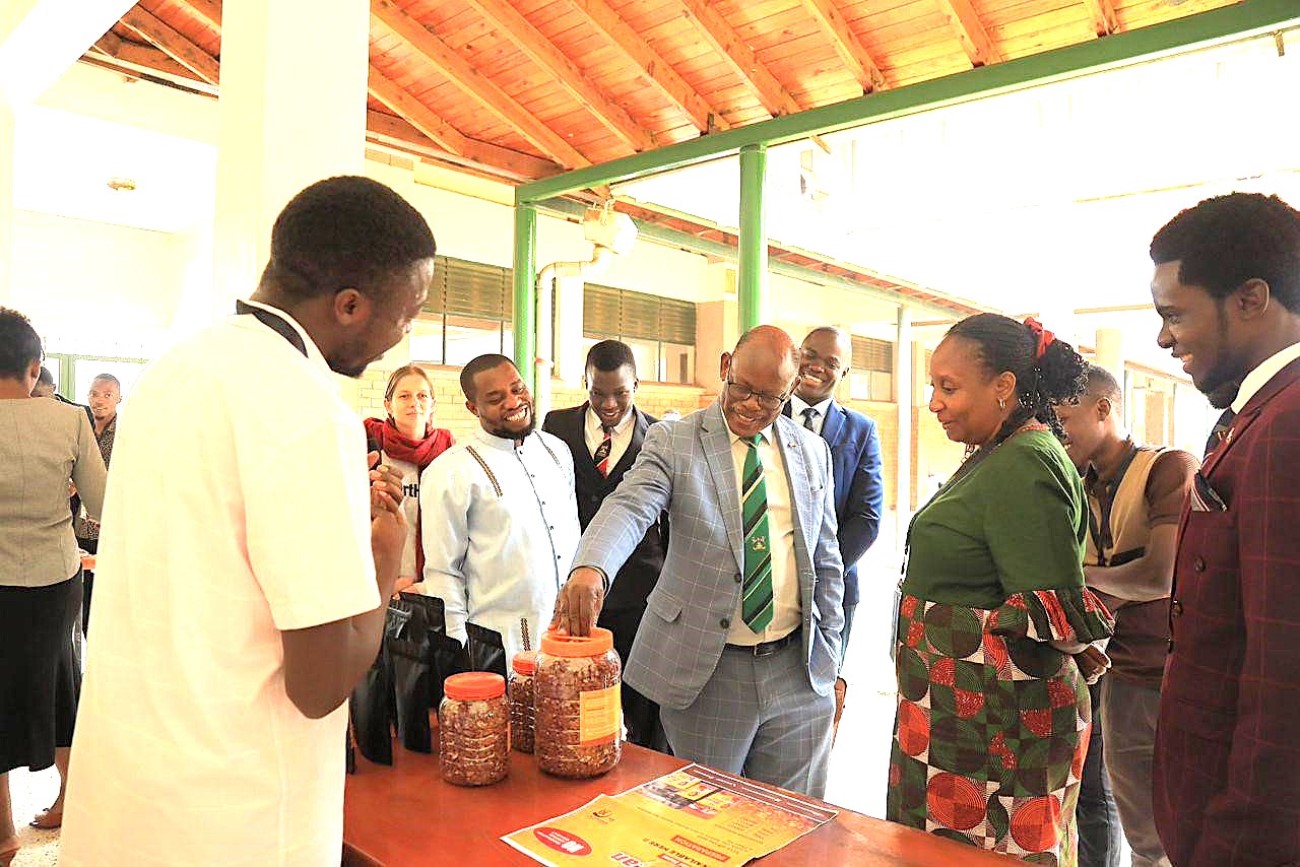
Most notably, the event was honored by the presence of the Vice Chancellor of Makerere University Prof. Barnabas Nawangwe. The Vice Chancellor commended the revitalization efforts, acknowledging the Centre’s immense potential to incubate hundreds of food-based start-ups and create employment opportunities for thousands of graduates. “The Centre is now well-positioned to become a flagship platform for innovation, employment creation, and agro-industrial development in Uganda and beyond. Makerere University remains committed to supporting such initiatives that align with national priorities and global development goals.”
The event featured the unveiling of the operational framework for the revitalized Centre, highlighting its commitment to innovation, entrepreneurship, and practical graduate training. Stakeholders in attendance expressed enthusiasm and pledged support for future collaboration, research, and product development initiatives aligned with national development priorities. The event also provided a platform to deepen partnerships with private sector actors and development organizations, reinforcing confidence in the Centre’s potential to serve as a national model for university-led incubation.
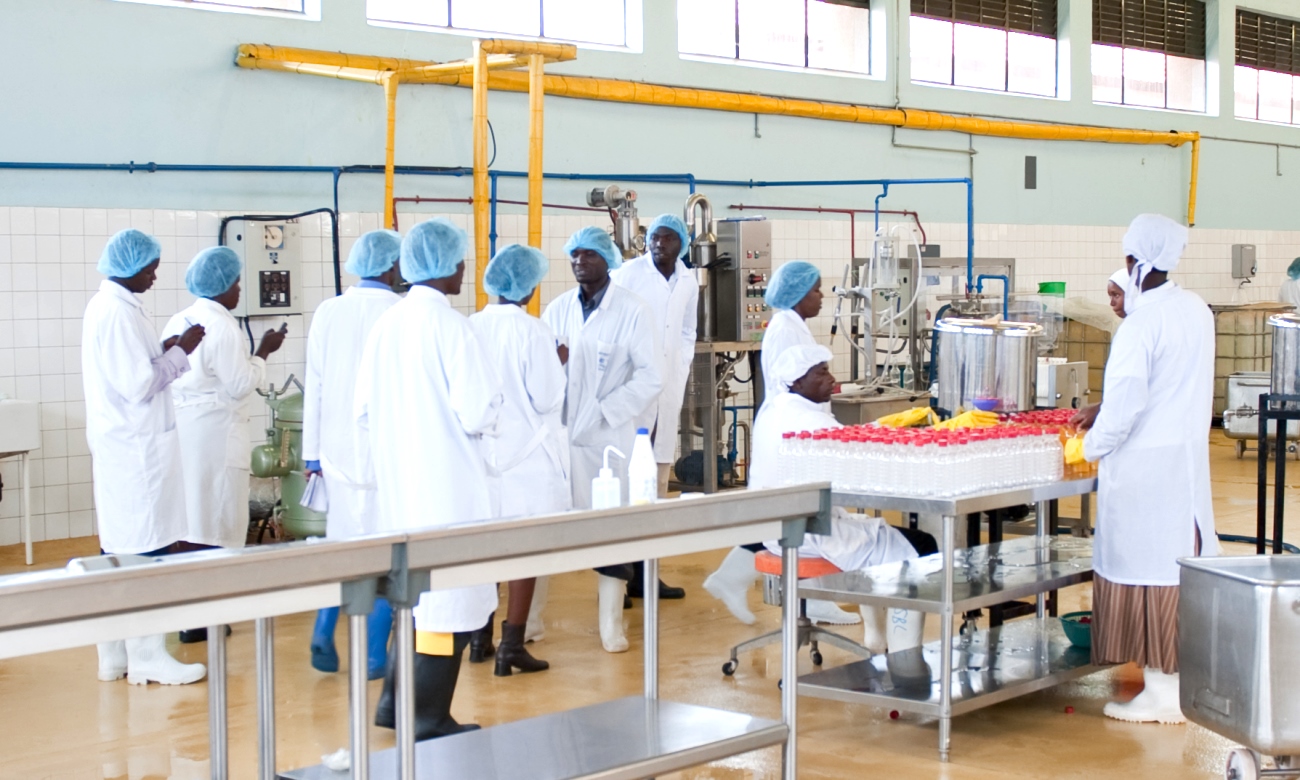
Agriculture & Environment
SophiA Project Upgrades Medical Infrastructure at Buvuma Health Centre IV, Trains Technicians for Maintenance Works
Published
1 week agoon
July 9, 2025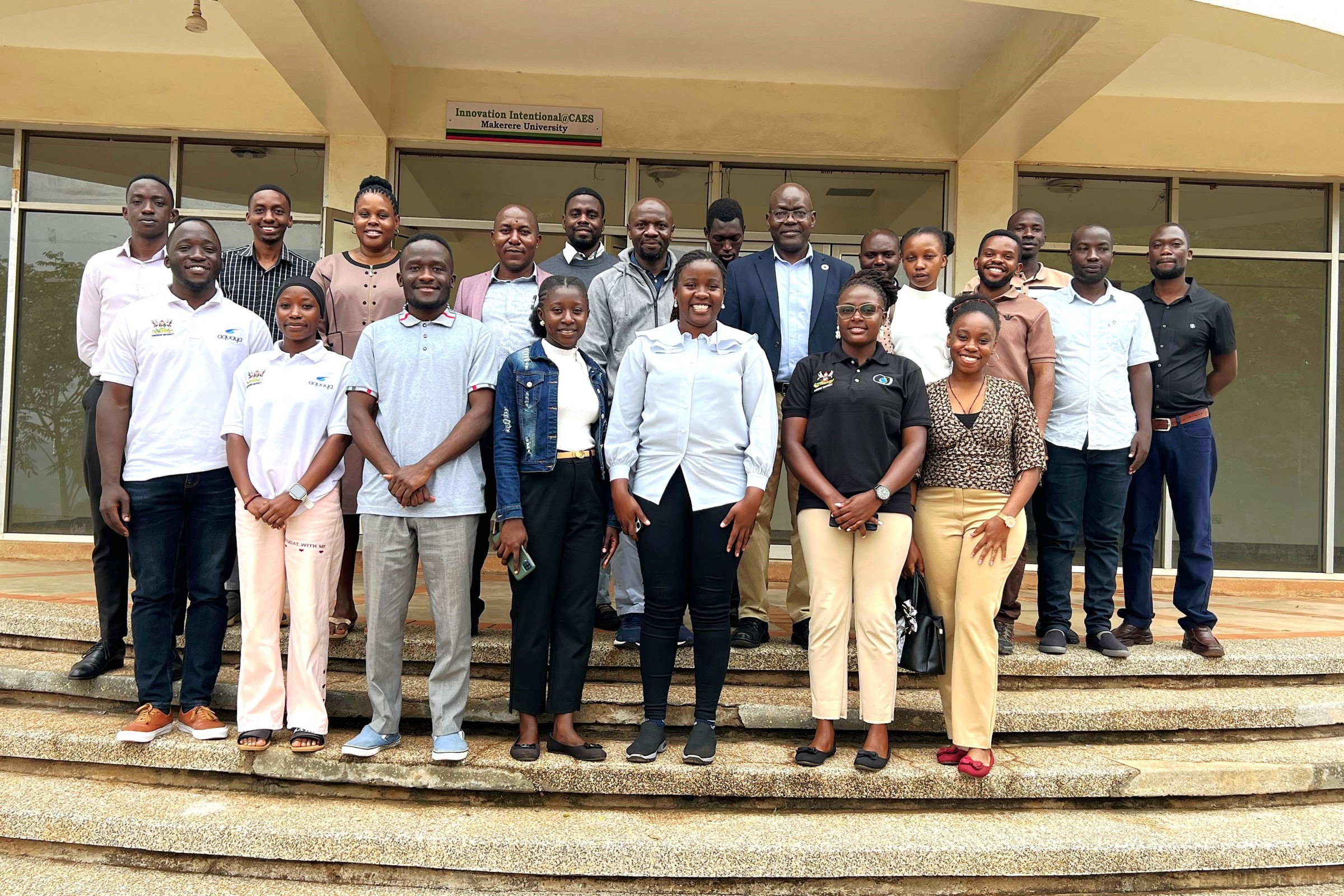
Overview of the Sustainable Off-Grid Solutions for Pharmacies and Hospitals in Africa (SophiA) Project
Despite ongoing urbanization across Africa, the majority of the population still resides in rural and remote areas, where infrastructure development remains limited. These regions face significant challenges such as lack of access to healthcare, education, clean water, and reliable electricity, contributing to higher rates of illness and poverty compared to urban centres. According to reports, Sub-Saharan Africa has approximately 120,000 public health facilities (22,000 hospitals and 98,000 health posts), of which around 26% lack any electricity access, and only 28% have reliable power supply.
Access to good healthcare is critical for sustainable development. However, many rural medical centres operate under harsh conditions – using polluted water, lacking cooling for medicines, and facing poor sanitation – largely due to unreliable electricity and water supply. Although half of the population in Sub-Saharan Africa lacks electricity, the region has abundant renewable energy potential that can be effectively harnessed through off-grid solar photovoltaic (PV) systems.
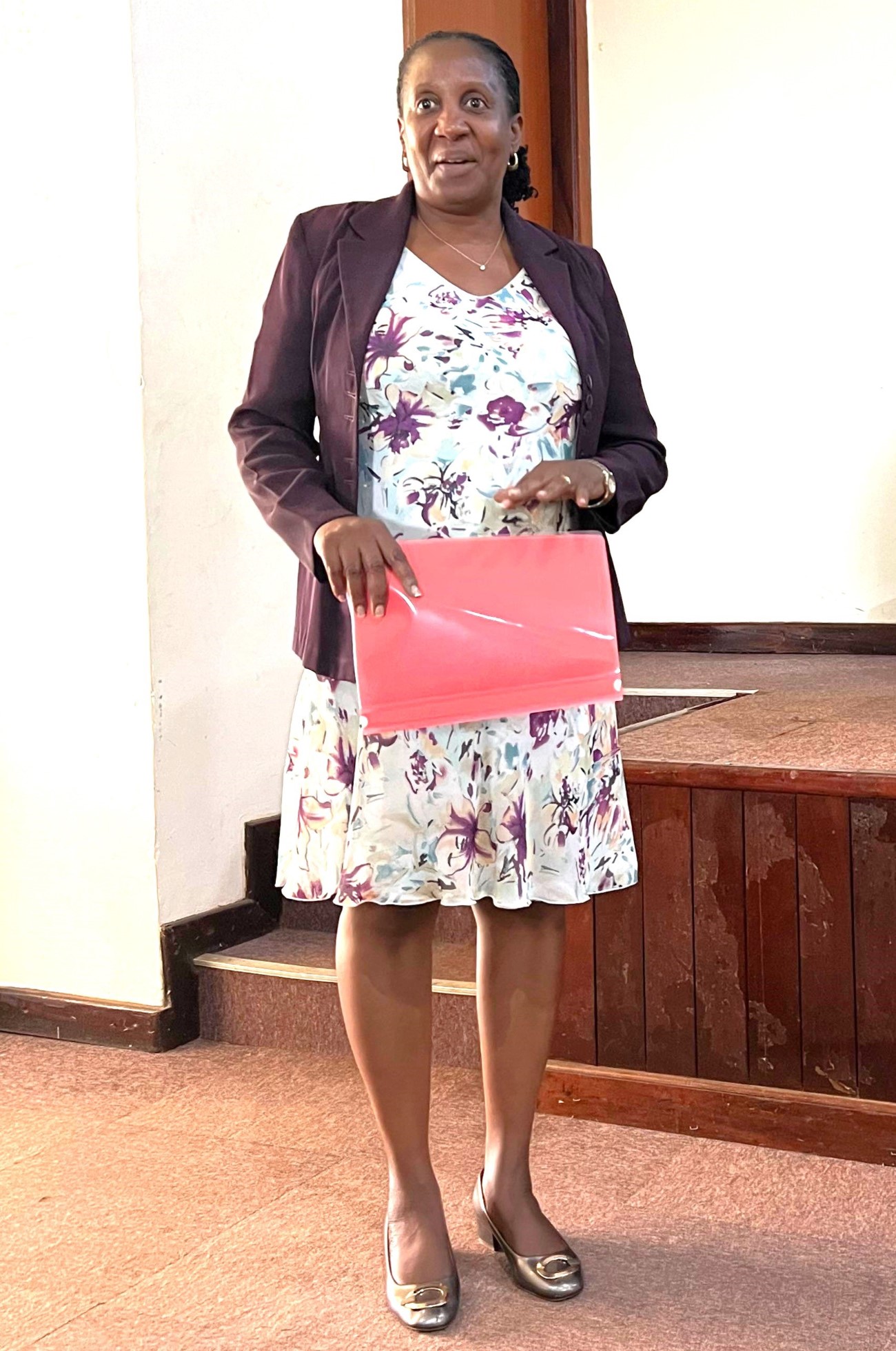
To address the above-mentioned challenges facing the African Continent, Makerere University in partnership with 13 organizations across Europe and Africa developed a project titled, “Sustainable Off-grid solutions for Pharmacies and Hospitals in Africa (SophiA)”. The five-year project that began on 1st October 2021 is funded by the European Union (Project: 101036836 – SophiA – H2020-LC-GD-2-3-2020). At Makerere University, the project is coordinated by Dr. Nicholas Kiggundu, Associate Professor in the Department of Agricultural and Biosystems Engineering, College of Agricultural and Environmental Sciences (CAES).
Piloted in Burkina Faso, Cameroon, Malawi, and Uganda, SophiA aims to provide sustainable off-grid energy solutions to rural and remote health facilities, fostering economic growth and ensuring equitable access to energy and healthcare. Using various technologies, such as photovoltaics, solar thermal, electrical and thermal storage, water treatment and natural refrigerants with low global warming potential, SophiA has developed and manufactured locally innovative, modular, affordable and efficient solar powered systems for providing:
- Safe and clean drinking water, free of bacteria and viruses, and deionised water for medical purposes;
- Hot water and steam production for thermal requirements of the hospitals;
- Cooling of medicines and food at +5°C;
- Low temperature storage of blood plasma and vaccines at -30°C;
- Ultra-low temperature storage of sensitive medication (e.g. some Covid-19 or Ebola vaccines) at -70°C.
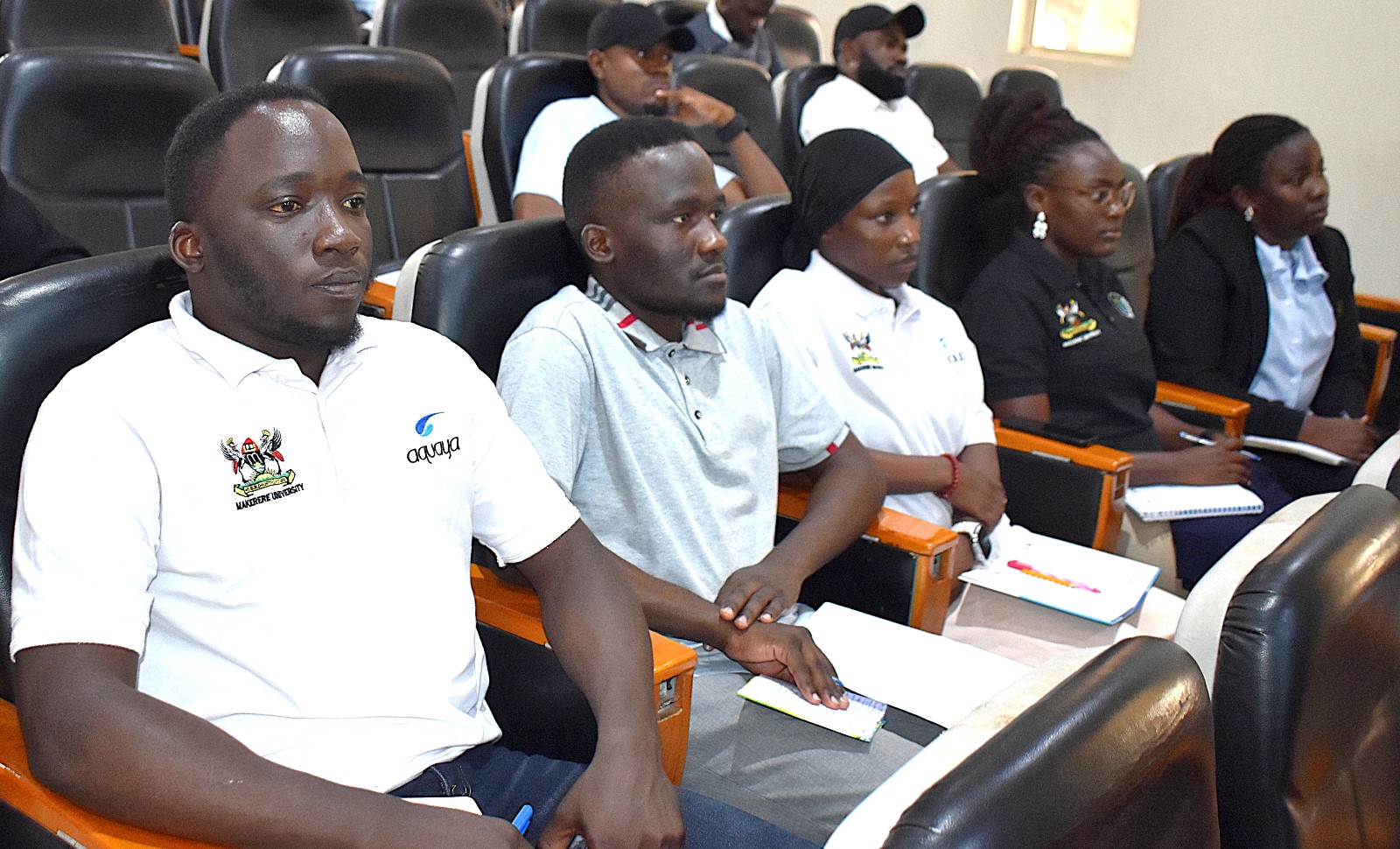
In addition, PV MedPort, a simple and 100% solar-powered solution has been developed and tested as a mobile health care station in small remote areas in 4 different geographical conditions in Africa. The SophiA system has been manufactured in Africa and will provide, for the first-time, innovative solutions based on climate-friendly natural refrigerants to cover cooling demand for three different temperature ranges (-70°C, -30°C and +5°C). The system has been tested and demonstrated at four rural hospitals in remote regions throughout the African continent covering the major geographical regions and different climatic conditions in Burkina Faso, Cameroon, Malawi and Uganda.
SophiA Project initiatives in Uganda
In Uganda, all Health Centre IV hospitals with surgical theatres have been connected to the national grid except Buvuma Health Centre IV, which serves over 120,000 people scattered across 52 islands. Recognizing this gap, the Ministry of Health selected Buvuma Health Centre IV for the SophiA project to demonstrate sustainable off-grid solutions.
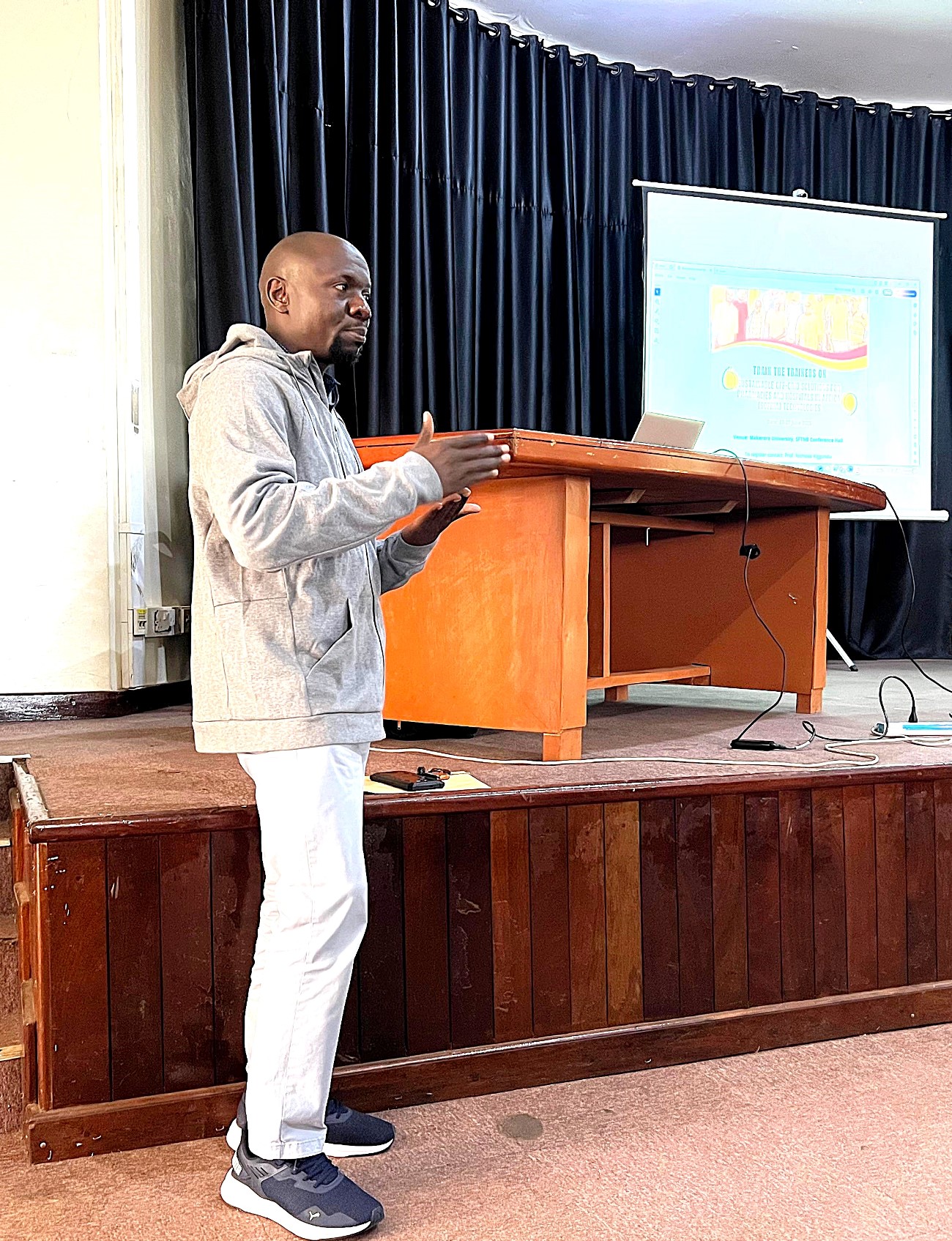
The SophiA System at Buvuma Health Centre IV provides the following services:
- Off-grid electricity supply
- Safe, clean drinking water for patients, staff, and the community
- Hot water and steam systems crucial for maternal care
- Solar-powered cooking and meal preparation
- Cooling systems for surgery and intensive care units
- Refrigeration for medicines at +5°C, blood plasma storage at -30°C, and ultra-low temperature storage (-70°C) for sensitive vaccines such as those for COVID-19 and Ebola
Training of Trainers Workshop
As the SophiA project approaches completion in September 2025, it is vital to establish a skilled pool of technicians capable of handling maintenance and minor repairs of the system components, including solar panels, water treatment units, generators, batteries, and cooking kits.
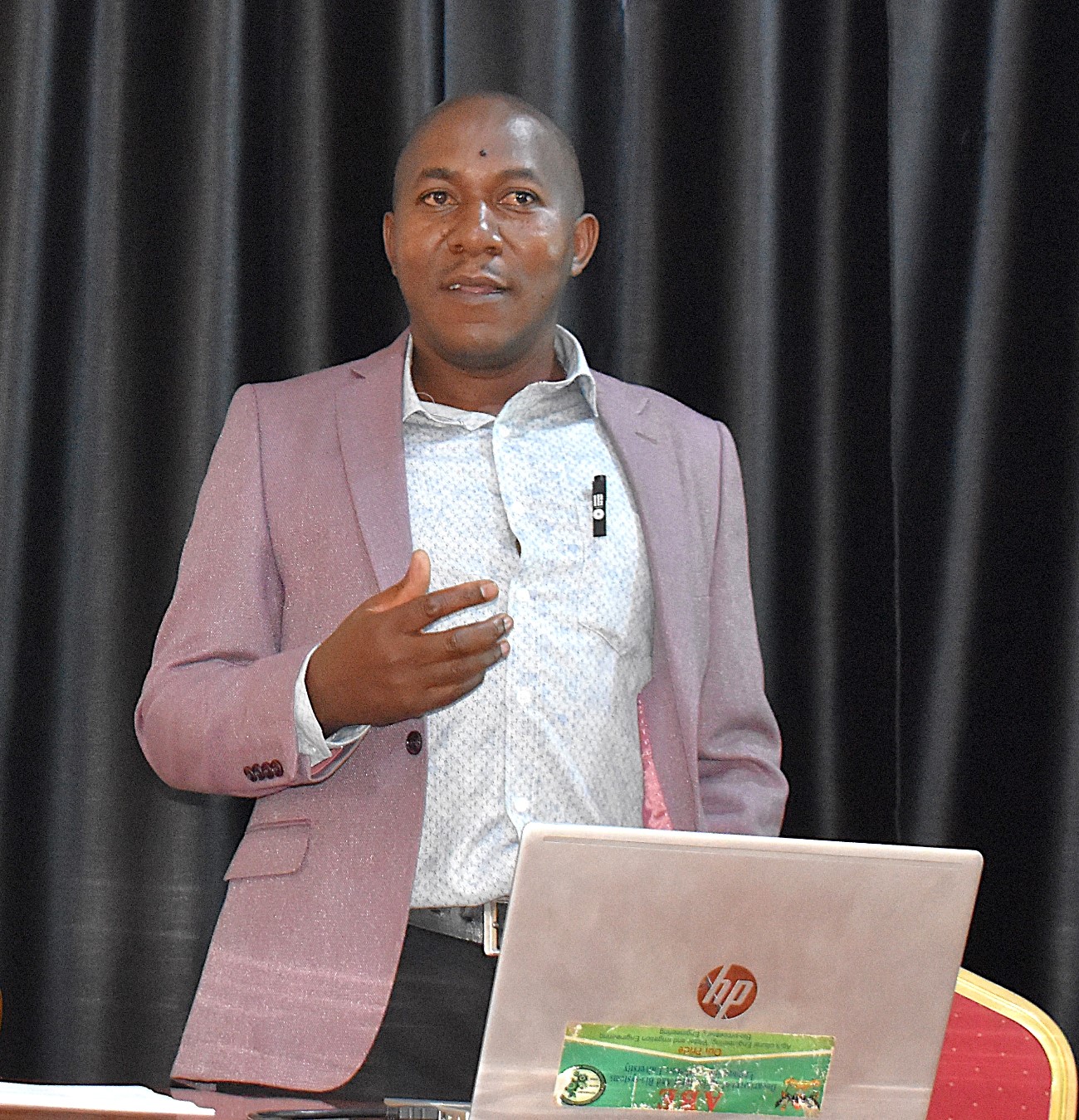
From June 23 to 27, 2025, Makerere University hosted a comprehensive Training of Trainers workshop. The training programme encompassed a diverse range of topics delivered by subject matter experts from institutions, including Makerere University (Department of Agricultural and Biosystems Engineering – CAES, and the College of Engineering, Design, Art and Technology – CEDAT), Hochschule University of Applied Sciences, and Busitema University. Participants were carefully selected from diverse professional backgrounds, including recent engineering graduates from CAES and CEDAT, Makerere University, University technical staff, personnel from Kyambogo University, officials from Buvuma District Works and Health Departments, and electricians from Kampala City. The training sessions were conducted at Makerere University and Buvuma Health Centre IV Hospital.
Training Modules Included:
- Sustainable energy systems and their practical applications
- Energy generation and storage technologies
- Solar water heating: design, operation, maintenance, and performance optimization of solar water heaters, crop dryers, and concentrating solar heaters
- Solar PV technologies in Uganda: cell technology, system design, operations, maintenance, and hands-on practicals for standalone and grid-connected systems
- Public health implications of water quality
- Water treatment and quality management, including protocols, parameters, and case study on the MCDI treatment system
- Water quality testing methodologies
- Introduction to sustainable refrigeration and cooling technologies
- Environmental impact and safety considerations for refrigerants
- Refrigeration cycles and component overview
- Life cycle assessment of SophiA technologies
- Thermal energy storage within the SophiA system
- Steam as a productive energy source
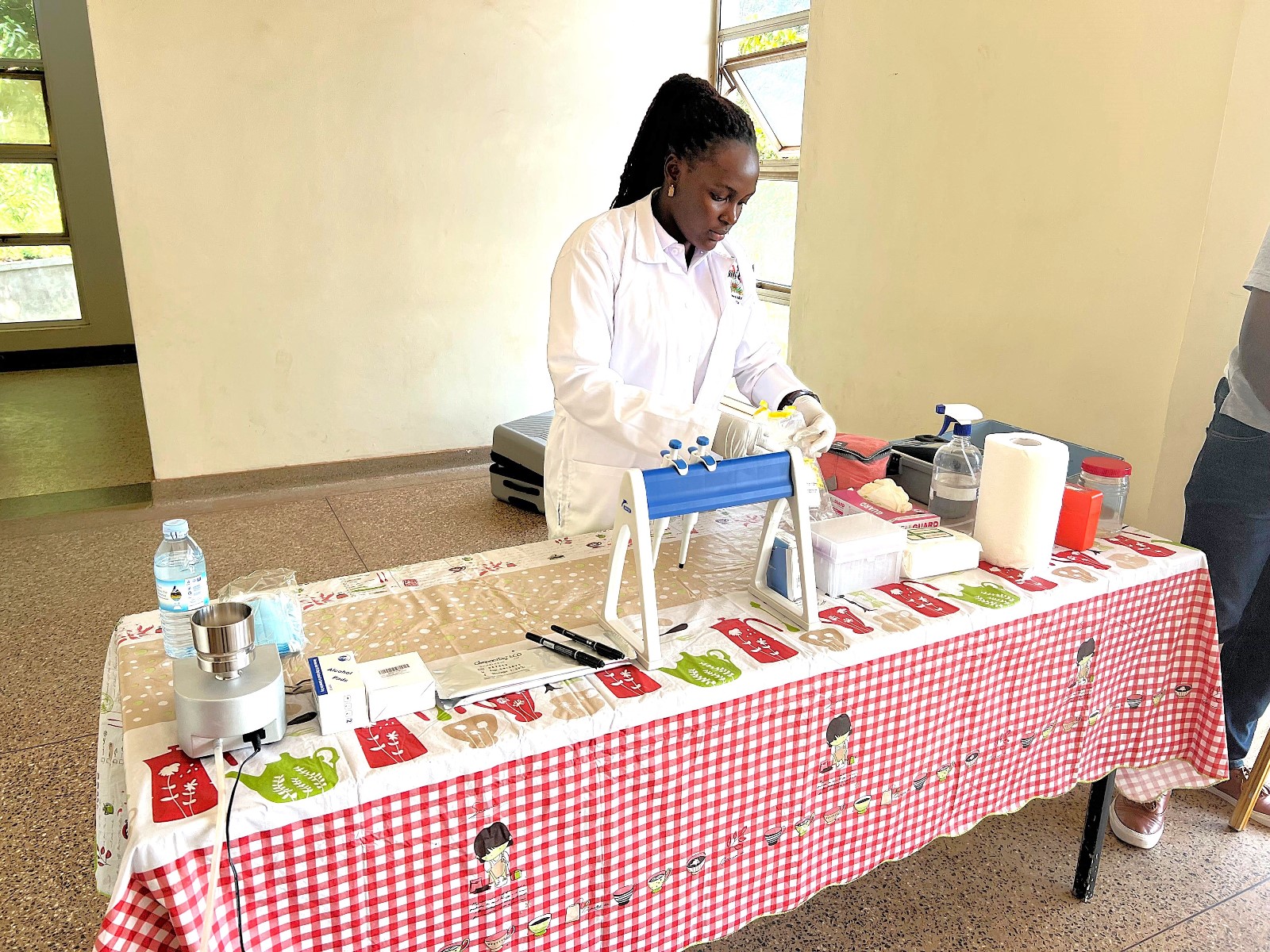
The Training Sessions
Day One: Introduction to foundational concepts in solar energy technologies
The first day of the SophiA Train the Trainers Workshop focused on building foundational knowledge in sustainable and solar energy systems. Led by Dr. Peter Tumutegyereize and Dr. Francis Mujjuni, participants explored a range of technologies and applications critical to clean energy deployment.
Key topics included:
Sustainable Energy Systems: Introduction to renewable energy systems including bioenergy, hydro, wind, geothermal, hydrogen fuel cells, and battery storage.
Solar Radiation & Geometry: Understanding solar constants, irradiance, and the impact of atmospheric conditions on solar performance.
Solar Thermal Technologies: Detailed look at solar water heating systems (FPCs and ETCs), maintenance, sizing, and solar dryers for agricultural and industrial use.
Photovoltaic (PV) Systems: Working principles, types of PV cells, performance factors, and diagnostics. Practical testing techniques and metrics like Voc, Isc, MPP, and PR were discussed.
Simulation & Application: Olivia Nakiwanuka demonstrated a PVsyst-based simulation of a 2.55 kWp standalone system for a conference hall, showing a high solar fraction (97.88%) and low LCOE (USD 0.03/kWh).
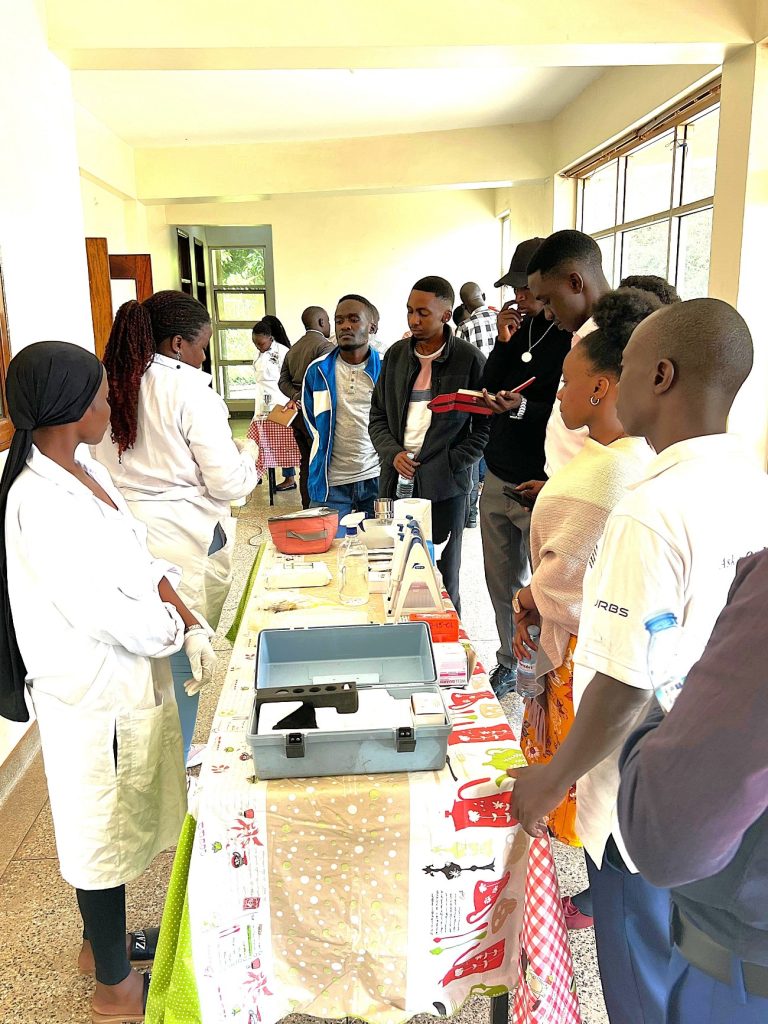
The sessions emphasized practical skills, performance analysis, and real-world application, equipping participants to train others and support solar adoption, especially in rural and off-grid settings.
Day Two: Water Treatment Technologies
The second day focused on water treatment technologies relevant to low-resource healthcare settings. Facilitated by Sneha De and Mr. Duc Dinh Ngoc from Hochschule Karlsruhe University, sessions covered technical, environmental, and operational challenges, with contributions from Dr. Joshua Wanyama on water quality management and Dr. Prossie Nakawuka on practical water testing.
Key challenges addressed included unreliable water supply and contamination in healthcare facilities, emphasizing the need for decentralized water treatment, especially in rural areas.
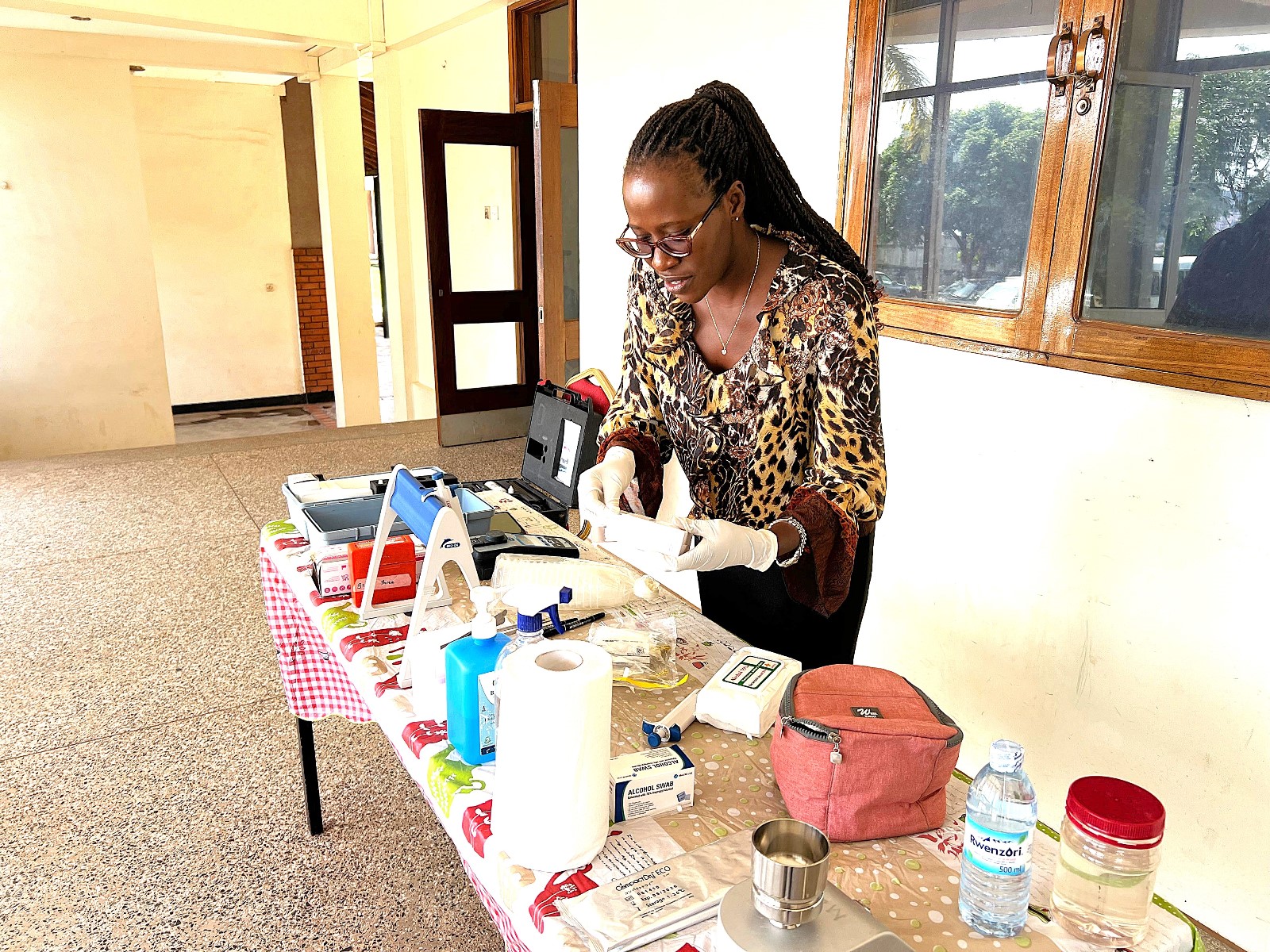
Sneha De reviewed biological and physical/chemical water treatment methods, highlighting technologies such as activated sludge, filtration, membrane bioreactors, and advanced disinfection techniques. The SophiA modular water treatment system, integrating ultrafiltration and membrane capacitive deionisation (MCDI), was introduced as a scalable solution for producing safe drinking and deionised water for medical use.
Mr. Duc Dinh Ngoc trained participants on the MCDI technology, an energy-efficient method for salt and fluoride removal suitable for low-salinity water.
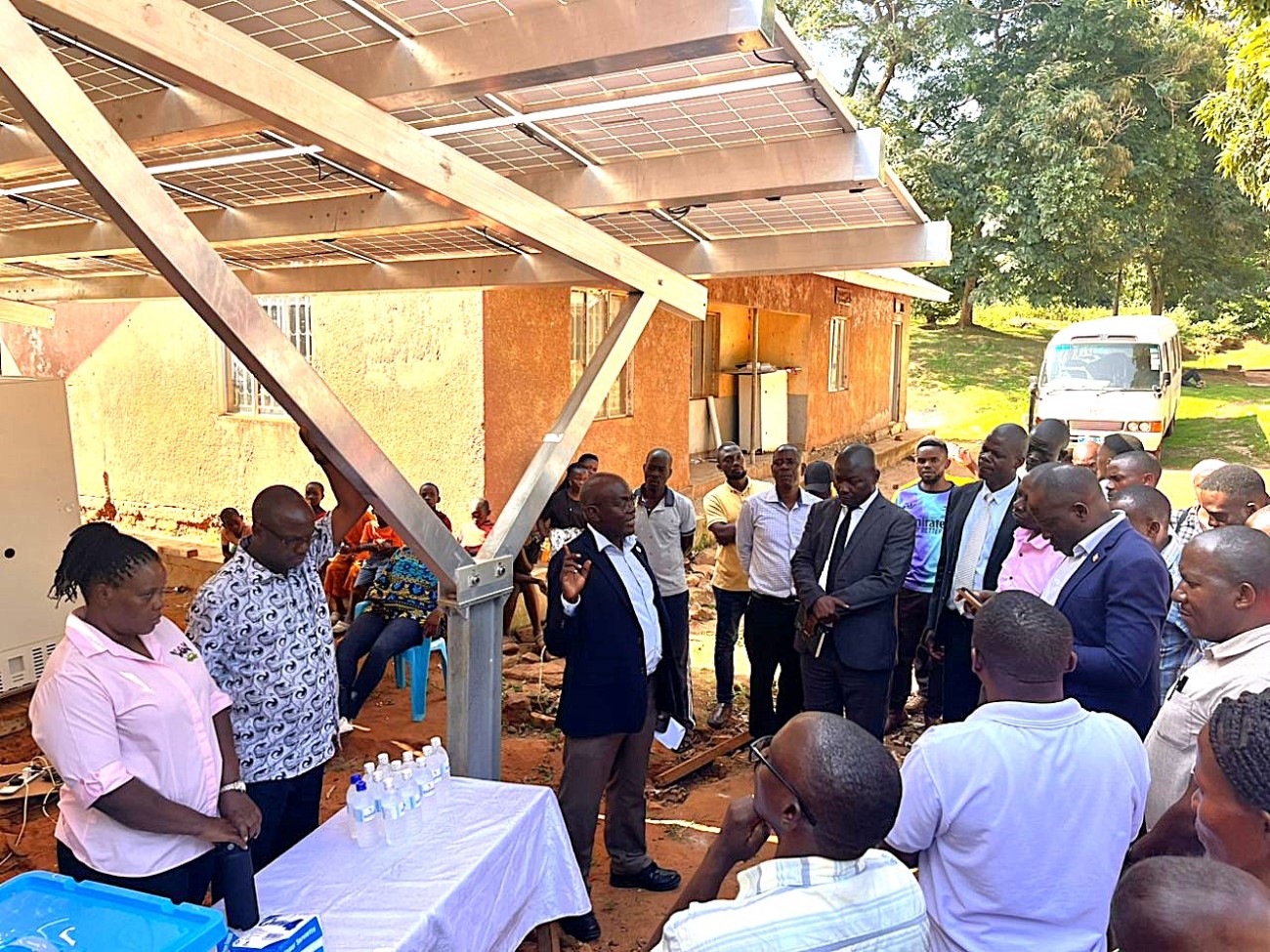
Dr. Joshua Wanyama discussed the water quality management protocols, outlining key physical, chemical, and biological water parameters and monitoring strategies, including modern IoT-based tools, to ensure water safety and public health.
The day concluded with a hands-on lab session by Dr. Prossie Nakawuka, where participants practiced water quality testing using turbidimeters, incubators, and filtration techniques.
Overall, Day Two combined theoretical insights, technology demonstrations, and practical skills, preparing participants to implement sustainable water treatment and quality management systems in healthcare environments.
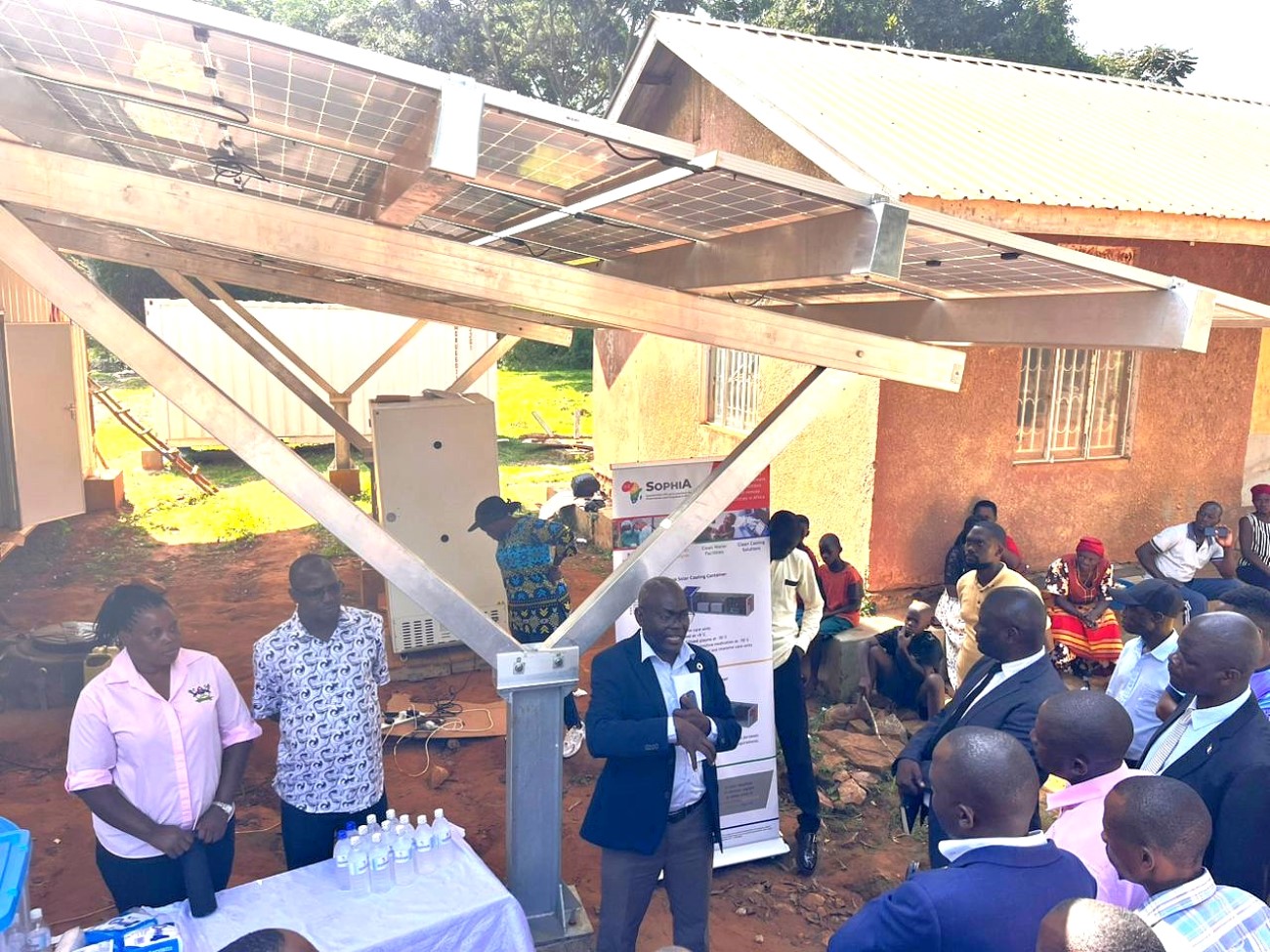
Day Three: Refrigeration and Cold Storage
The third day of the SophiA workshop focused on sustainable refrigeration and cold storage technologies tailored for healthcare in Sub-Saharan Africa. Experts discussed energy-efficient, climate-friendly cooling solutions vital for vaccine storage, medicines, and diagnostics, especially in off-grid and rural settings.
Key highlights included the introduction of solar-powered and biomass-based refrigeration systems, thermal energy storage methods, and the use of natural refrigerants like propane, ammonia, and CO₂ as environmentally safer alternatives. Presentations emphasized the critical role of refrigeration in healthcare and the urgent need to replace harmful chemicals with sustainable technologies.
Sessions covered real-world applications such as the SophiA cooling containers in Burkina Faso, safety protocols for flammable refrigerants, and the environmental and economic benefits of solar refrigeration systems assessed through life cycle analysis.
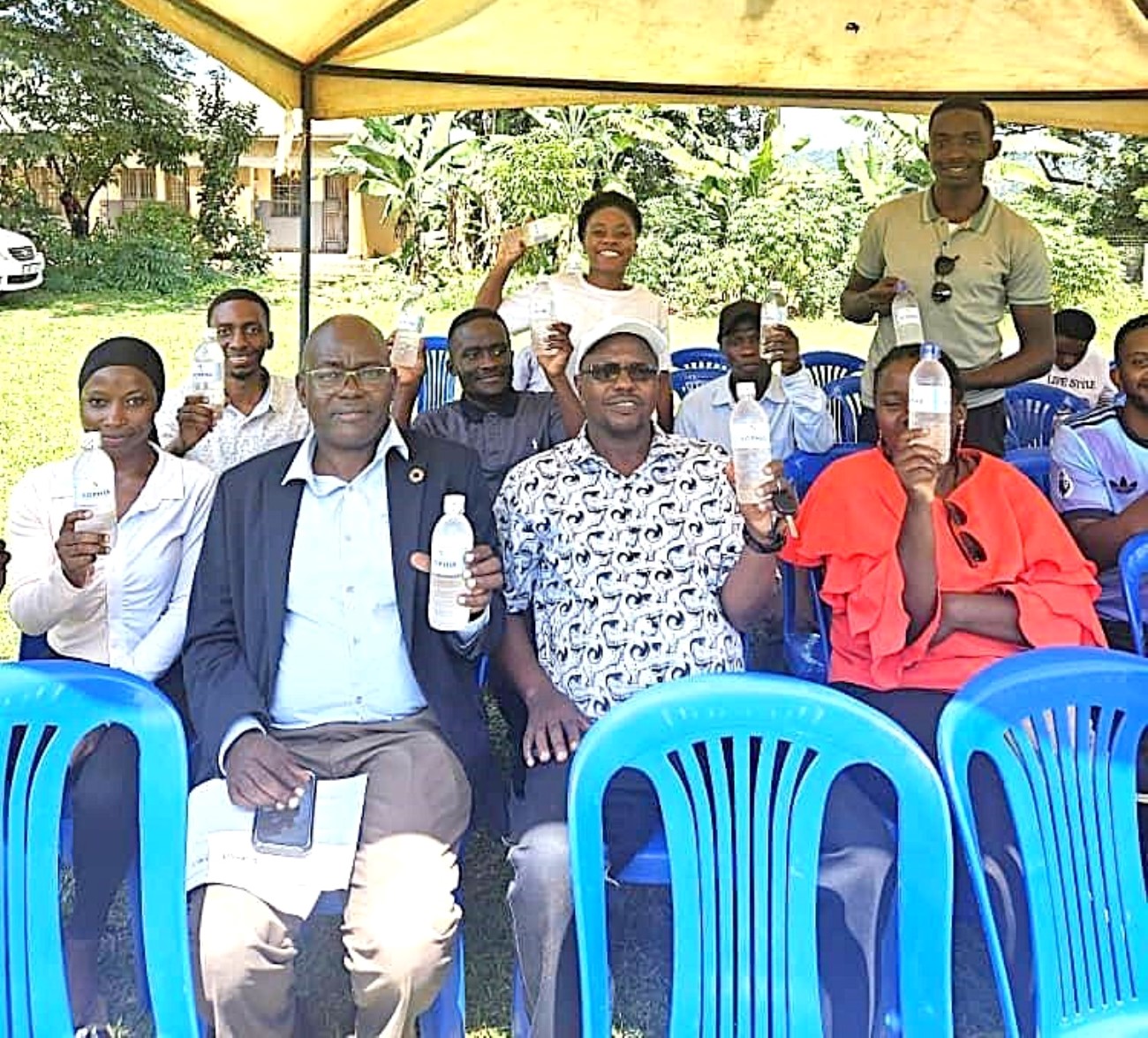
The day ended with an interactive quiz and discussion, reinforcing learning and encouraging participants to apply sustainable cooling practices in their communities.
Day Four: World Refrigeration Day & Field Visit to Buvuma Island
The fourth day of the SophiA Train the Trainers workshop was dedicated to the celebration of the World Refrigeration Day and a field excursion to Buvuma Island, providing participants with a unique opportunity to witness the SophiA system in action. The day was coordinated by Dr. Sarah Bimbona and Dr. Nicholas Kiggundu, who led the delegation to Buvuma Health Centre IV, the pilot site for the SophiA installation in Uganda.
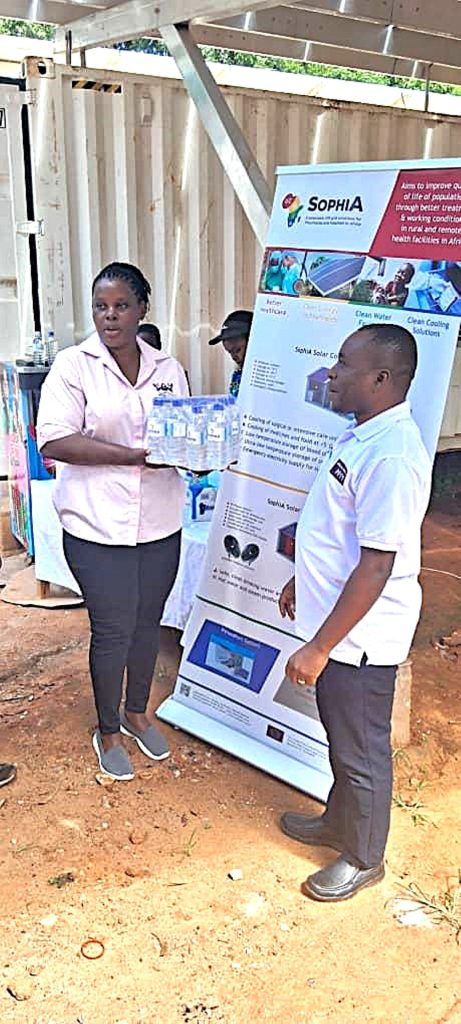
The visit served as both a practical extension of the previous day’s technical sessions and a community engagement event. Participants were able to observe the installed SophiA system, which integrates solar-powered refrigeration, water treatment and steam generation technologies designed for off-grid healthcare settings. During the visit, Dr. Kiggundu provided a detailed briefing to local stakeholders, including representatives from the Buvuma District Local Government, delegates from the Buganda Kingdom, and members of the local community. He explained how the SophiA system will enhance healthcare delivery on the island through reliable cold storage for vaccines and medicines, access to clean drinking water, and steam generated for cooking and use in the maternity wards.
As part of the long-term sustainability plan for the SophiA system, the launch of SophiA Water was announced, an entrepreneurial initiative designed to generate revenue locally for the operation and maintenance of the system.
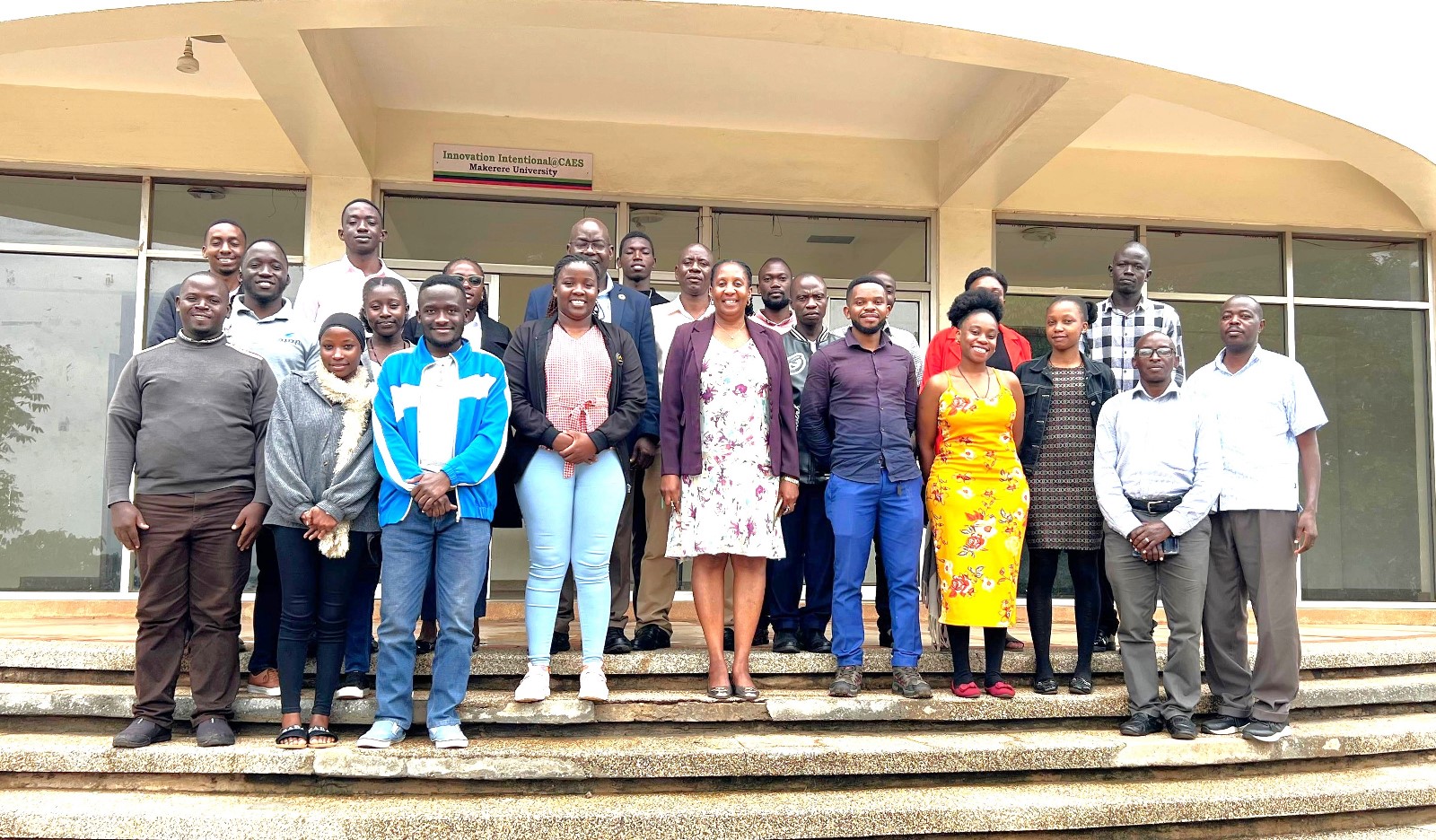
The field trip ended with a certificate awarding ceremony in appreciation of the participants’ dedication and active engagement throughout the training programme.
Agriculture & Environment
APRC Trains Graduate Students & Stakeholders in the Use of the African Agriculture Adaptation Atlas
Published
2 weeks agoon
July 3, 2025
The Agricultural Policy Research Centre (APRC), housed within the College of Agricultural and Environmental Sciences (CAES) at Makerere University, continues to play a pivotal role in shaping Uganda’s agricultural future through evidence-based policymaking. With a mission to ensure that agricultural policies are grounded in empirical research and data, APRC is actively investing in capacity-building initiatives that empower researchers, policymakers, and development actors.
In a significant stride toward building climate resilience in African agriculture, APRC recently organized a two-day intensive training workshop focused on the African Agriculture Adaptation Atlas (AAAA) – a state-of-the-art, web-based decision-support platform that facilitates the integration of climate data into agricultural planning and policy.

The workshop, held on Wednesday 25th and Thursday 26th June 2025 at the School of Agricultural Sciences, Makerere University, targeted two key groups: graduate students on the first day, and university faculty, government officials, and development practitioners on the second. This structure ensured tailored learning experiences for both emerging and seasoned professionals, helping to bridge the gap between academic research and real-world policy implementation.
The African Agriculture Adaptation Atlas (AAAA) is designed to provide dynamic, data-rich visualizations that support informed decision-making in agriculture and food systems across the continent. Through interactive maps and analytical tools, users can explore projected climate impacts, evaluate risks, and identify localized, climate-smart adaptation strategies.

Throughout the sessions, participants received hands-on training in a broad range of AAAA functionalities, including:
- Leveraging the Atlas for research and policy communication: Enhancing the ability of scientists and policy actors to translate complex climate data into actionable insights;
- Assessing projected climate impacts and associated agricultural risks: Essential for forward-looking planning and risk mitigation;
- Identifying climate-smart investment options, with a particular focus on the livestock sector, which is especially vulnerable to climate shocks;
- Analysing gendered vulnerabilities: Examining how climate change disproportionately affects women in agricultural communities;
- Understanding the implications of heat stress on agricultural productivity: Supporting targeted interventions to protect producers and their livelihoods;
- Estimating the economic returns of adaptation strategies: Aiding in prioritizing investments and allocating limited resources effectively.

Prof. Bernard Bashaasha, the APRC Coordinator, emphasized the importance of the training in advancing Africa’s adaptation agenda. “As climate change continues to threaten food security and disrupt livelihoods across the continent, tools like the AAAA, and the skills to use them effectively are essential. They empower decision-makers to craft policies that are adaptive, inclusive, and rooted in science,” he noted.
The workshop was coordinated by Dr. Florence Rwiza, Lecturer in the Department of Agribusiness and Natural Resource Economics at CAES.
More photos from the Training






Trending
-

 General2 weeks ago
General2 weeks agoRe-advert: Admission to Undergraduate Programmes 2025/2026
-

 General1 week ago
General1 week agoRe-Advert for Applications for Diploma and Certificate Training
-

 General5 days ago
General5 days agoMakerere University Fees Waiver for 40 First Year Female Students 2025/2026
-

 General2 weeks ago
General2 weeks agoPress Statement on Ranking
-

 Health1 week ago
Health1 week agoCall for Applications: Responsible Conduct of Research (RCR) Training Course
